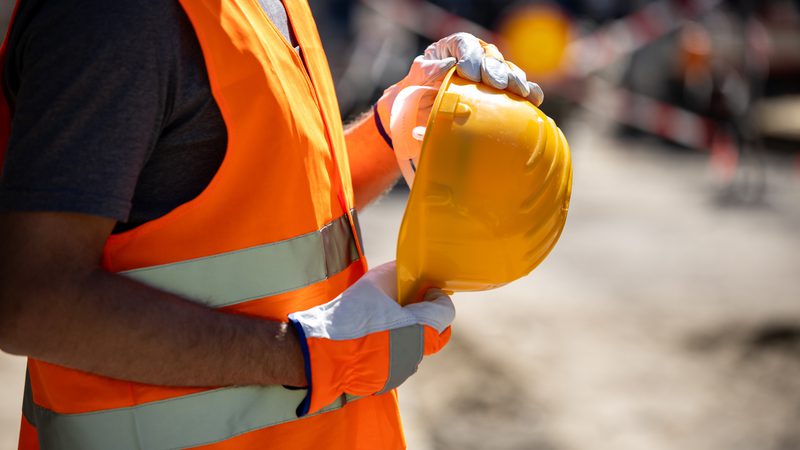Rewriting the rulebook — rugby union’s new era & what it means for the 2026 Six Nations

We explore how World Rugby’s newest reforms are reshaping the sport and what they mean for clubs and governing bodies ahead of the 2026 Six Nations.
Read more
We make the difference. Talk to us: 0333 004 4488 | hello@brabners.com
AuthorsLauren AinsworthAlexander Walton
5 min read

The construction industry is well-known for its occupational hazards including manual handling injuries, slips and trips, exposure to hazardous materials like asbestos and the risk of falls from height. However, another issue is becoming more prevalent — mental health and stress. The Health and Safety Executive (HSE) — the regulator for health and safety in the workplace — has set its ten-year strategy for 2022-2032, which places mental health at the top of its agenda.
The construction sector is particularly vulnerable to mental health issues due to its demanding deadlines, long hours of work, physically challenging tasks and its highly transient workforce. These pressures are often exacerbated by the fact that building sites often have a negative ‘stiff upper lip’ culture, where those struggling with mental health issues may feel unable to talk about it with their colleagues or seek help for fear of stigma.
On top of that, unlike with physical injuries, mental health issues aren’t always as apparent. This can lead to serious consequences such as absenteeism, reduced productivity and — in severe cases — even suicide. The severity of the issue has led industry leaders to call for mental health provisions to be embedded within construction contracts, meaning that psychological wellbeing is being placed on equal footing with physical safety.
It's therefore vital for companies to understand the evolving regulatory, contractual and reputational implications of mental health.
Here, Lauren Ainsworth and Alexander Walton explore how organisations can proactively address these challenges through policy and training.
According to the HSE, a total of 1.7m workers suffered from work-related ill health in 2023/24 (an estimated 776,000 cases were due to stress, depression or anxiety) and an estimated 33.7 million working days were lost due to work-related ill health and non-fatal workplace injuries. On average, each person suffering stress, depression or anxiety took more than 21 days off work.
In a study carried out by researchers at the Laing O’Rourke Centre for Construction Engineering and Technology at the University of Cambridge (LORC), at least 70% of those in the construction industry reported feeling stressed at work.
As part of research carried out by the Chartered Institute of Building (CIOB), 28% of those surveyed experienced suicidal thoughts at least once over the past year.
Social media company On The Tools — a prominent online community for the construction industry — reported that four times the number of tradespeople are dying by suicide than the national average with 7,000 taking their own lives in the last decade.
Alongside the moral duty to protect employees’ mental wellbeing at work, the Health and Safety at Work etc. Act 1974 makes it clear that employers also have a legal duty to ensure — so far as is reasonably practicable — the health, safety and welfare of their employees. This includes mental health and employers must ensure so far as it is reasonably practicable to reduce the risk of work-related ill health to its lowest level.
Additionally, the Management of Health and Safety at Work Regulations 1999 require employers to assess and manage risks to health, including stress-related risks. Failure to do so can result in enforcement action by the HSE, civil claims and reputational damage.
Mental health support shouldn’t be a reactive measure — it should be a proactive investment. Employers must understand how to identify and reduce stress risks and would do well to proactively review their policies and procedures relating to:
We provide advice to employers to:
Mental health is no longer a peripheral issue in construction — it’s central to how businesses operate, thrive and protect their people. As the industry evolves, so too must the approach to employee wellbeing. Legal professionals have a vital role to play in guiding clients through this shift, ensuring that mental health is treated with the same seriousness as any other workplace hazard. This won’t just help to avoid legal pitfalls but build stronger, more resilient teams.
Our expert health and safety team helps employers like you to navigate this evolving landscape. Whether you’re developing stress risk assessments, training managers or creating a robust mental health strategy, you may benefit from Brabners Protect – our suite of proactive, integrated health and safety solutions designed to protect your people and business.
Talk to us by calling 0333 004 4488, sending us an email at hello@brabners.com or completing our contact form below.
Our recent construction event focusing on health, safety and wellbeing underscored the importance of staying attuned to the challenges shaping the sector. We host construction events quarterly, offering insights into topical issues — sign up to our popular Building Links events to stay informed and involved.


Loading form...

We explore how World Rugby’s newest reforms are reshaping the sport and what they mean for clubs and governing bodies ahead of the 2026 Six Nations.
Read more

We explore the regulatory risks that threaten solicitors’ clients, firms and professional standing and highlight the five most common pitfalls to avoid.
Read more

We explore safety considerations around Christmas markets and outline practical steps to comply with relevant safety legislation.
Read more